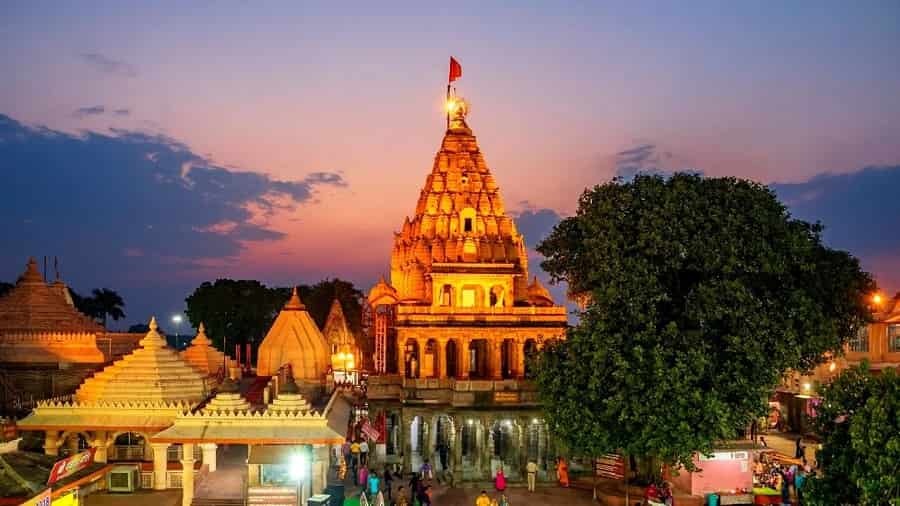Introduction
The Madhya Pradesh High Court has held that it is the sole discretion of the temple authorities to decide on VIP status at the Mahakaleshwar Temple in Ujjain dismissing a writ petition claiming the practice as arbitrary and discriminatory.
The title System permitting politicians to book darshan both problematic will be highlighted here A judgment underlines understanding within the judiciary of the expansive supervisory authority delegated to the competent authority in the administration of religious institutions, and re-affirms the Court’s refusal to define or limit the temple’s prerogative in selecting who may visit the sanctum sanctorum as “VIP” and who may not, despite assertions of deprivation by average devotees.
Background
This is a writ petition filed by one Darpan Awasthi who has alleged that the Mahakaleshwar mandir has a discriminatory entry policy. Petitioner had argued that among those providing water to the diety in the Garbhagriha, only VIPs were allowed to offer the water while the commoners or the devotees were not given the opportunity to perform the ritual. Referring to particular cases of politicians and bureaucrats having been granted admission, he submitted that this amounted to violation of Articles 14 and 25 of the Constitution. Special efforts in the form of RTI to understand the process brought no satisfactory answer from the temple authorities, which led to the legal challenge.
Key Points
The High Court’s judgment was shaped, amongst others, by a few salient legal principles and observations:
- Discretion of the authorities concerned: The court supported to Collector and Administrator of the Temple will be free to use discretion in the matter of recognising the VIPs and privileged entrants not on a fixed and deterministic basis, but on the need-based and situation required.
- No Statutory Definition: there is no Act or any Rule, which provides the definition of “VIP” for entering the temple and It is purely the jurisdiction of the Temple authorities to decide over this issue as Importune and not Perpetual at all. The lack of legislation on the matter of their privileges of office holders only provides that those in charge of administering the temple also responsible for creating real world solutions for receiving dignitaries and AAM AADMY as and when needed.
- No Fixed Protocol: The temple’s managing committee does not maintain any public or permanent list of VIPs, nor does it categorize any entitlements. Instead, decisions are made on a case-by-case basis, in accordance with fluctuating crowd sizes, security and religious factors that in many cases vary from day to day, influenced by either a religious festival, security warnings or government officials.
- No Judicial Intervention: The High Court reiterated that unless there is a violation of a provision of law or a statutory procedure, or malice is demonstrated, judicial review cannot be entertained for administrative or managerial decisions with respect to daily rituals or entry like this. Not only that, but this restraint is based on precedent, acknowledging the independence of religious bodies to develop their own standard operating procedures for the promotion of order and spiritual sobriety, consistent with the check demanded by constitutional safeguard of religious freedom.
- Universality in the System: The verdict highlighted other common practices at some of the largest places of worship to allow for managed entry, admitting that it was a matter of administrative necessity to manage throngs and protocol. VIP systems, temporary or with charges, are already present in a range of religious spaces in India because of which, during crowded events or celebrations that are high-profile, so everything is accessible and there is no limiting of worship. And these were never deemed arbitrary as a matter of principle when sensibly implemented.
Recent Developments
Disposing of the Public Interest Litigation (W.P. No. 32998/2025) by the Division Bench of Justice Vivek Rusia and Justice Binod Kumar Dwivedi, held as under:
- VIPs are able to enter Garbhagriha with prior permission from the Collector and Administrator on certain days.
- There was no cause of action as the petitioner was nothing but an “aggrieved person” with no nexus to the real public interest, so as to enable the court to intervene.
- Writ court is not the appropriate forum to lay down what is VIP and VVIP or how VIPs be treated at religious places etc as these are all matters of discretion of the competent authority.
Conclusion
Religious administrative authorities are fundamental in controlling how and who have access to sacred spaces which characterizes much of the autonomy and organization of public temples. The Madhya Pradesh high court has reiterated that regulatory powers (regarding VIP facilities), unless specifically put in a straitjacket by statute are not even amenable to writ jurisdiction, unless Can be shown, at least prima facie that there has been no application of mind or worse, a mala fide exercise of power.” Regulated or rare or selective VIP entry, as per the discretion of the Collector and the Administrator, is legally and logistically acceptable feature of the management of a large temple.
“PRIME LEGAL is a full-service law firm that has won a National Award and has more than 20 years of experience in an array of sectors and practice areas. Prime legal falls into the category of best law firm, best lawyer, best family lawyer, best divorce lawyer, best divorce law firm, best criminal lawyer, best criminal law firm, best consumer lawyer, best civil lawyer.”
WRITTEN BY Stuti Vineet


